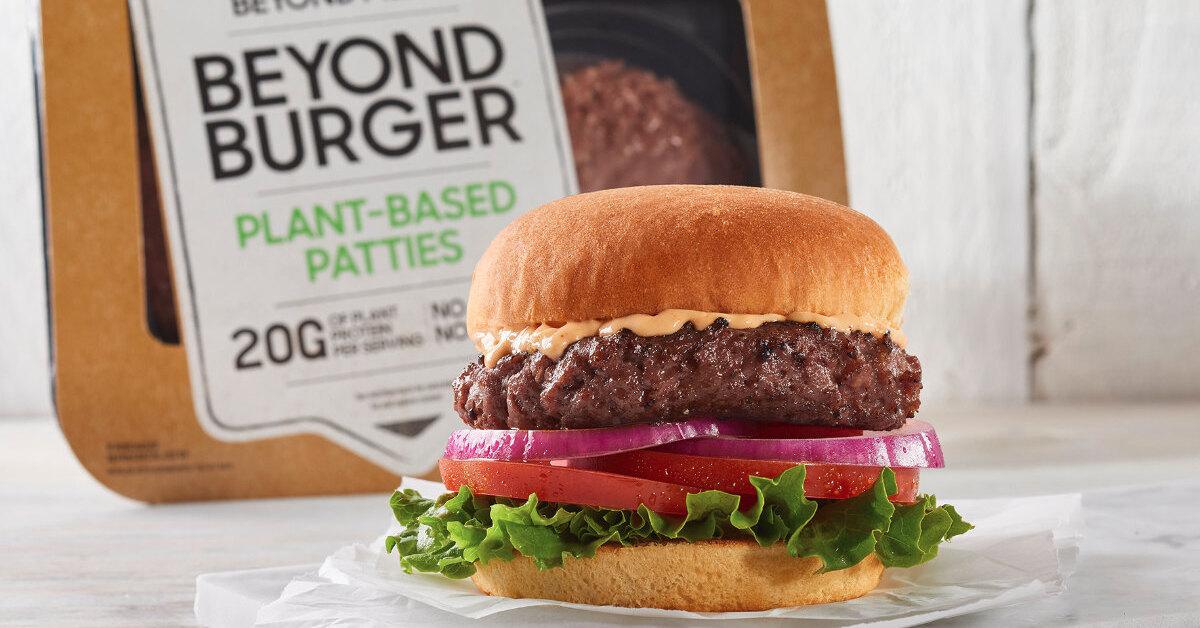Plant-based Burger Patties Market for Fitness and Wellness-Oriented Consumers

The plant-based burger patties market is increasingly capturing the attention of a specific and influential demographic—fitness and wellness-oriented consumers. Once considered the go-to segment for athletes and bodybuilders, protein-rich diets are now a mainstream part of wellness culture. With the rise of clean eating, sustainability awareness, and interest in high-performance lifestyles, plant-based burger patties are being reimagined as not just meat alternatives, but as functional health foods tailored for the active consumer.
Understanding the Wellness Consumer
The wellness market, valued at over USD 5 trillion globally, intersects with fitness, nutrition, and mental well-being. Wellness-focused individuals prioritize:
-
High-protein diets with clean, plant-based ingredients
-
Low-fat, low-cholesterol food options
-
Digestive health, immunity, and muscle recovery
-
Natural and minimally processed foods
These priorities are redefining expectations from the plant-based burger patties market, pushing brands to design products that align with performance nutrition without compromising flavor or satisfaction.
Key Nutritional Demands
For fitness and wellness consumers, plant-based burger patties must meet multiple dietary requirements:
1. High Protein Content
-
Most leading patties now offer 15–25g of protein per serving, comparable to beef.
-
Protein sources include pea, soy, lentils, chickpeas, fava beans, and increasingly, mycoprotein (fungal protein) and mung beans.
2. Low Saturated Fat and Cholesterol-Free
-
Unlike animal-based burgers, plant-based patties have zero cholesterol.
-
Use of coconut oil, sunflower oil, or avocado oil helps balance fat content with health benefits.
3. Rich in Fiber and Micronutrients
-
Most wellness-oriented products include soluble and insoluble fiber, supporting digestion.
-
Fortification with vitamin B12, iron, zinc, and omega-3s is common to meet fitness nutritional needs.
4. Clean Ingredients
-
No artificial preservatives, colors, or additives.
-
Gluten-free, non-GMO, soy-free, and allergen-friendly options are gaining popularity.
Product Innovations Targeting the Fitness Community
To cater to this growing segment, brands are innovating plant-based burger patties with enhanced functionality:
A. Performance Patties
-
Designed with sports nutrition in mind.
-
Enriched with branched-chain amino acids (BCAAs) and electrolytes.
-
Often used in meal prep kits for gym-goers or sold in fitness-focused cafes.
B. Superfood-Infused Patties
-
Incorporation of chia seeds, flaxseeds, turmeric, moringa, quinoa, and spirulina for added nutrients and antioxidants.
-
Appeals to health-conscious buyers focused on whole foods and superfoods.
C. Low-Calorie, High-Satiety Options
-
Patties made with ingredients like mushrooms, jackfruit, or cauliflower, offering fewer calories but high satisfaction and fiber.
Marketing Strategies to Attract Fitness Buyers
Wellness consumers are research-driven, label-reading, and value-aligned. Successful marketing in this space focuses on:
-
Nutritional transparency: Detailed protein, fat, and vitamin content per serving.
-
Functional claims: “Supports muscle recovery,” “gut-friendly,” “heart-healthy.”
-
Fitness influencer collaborations: Plant-based brands are partnering with athletes, trainers, and health coaches.
-
Active lifestyle branding: Visuals of gym-goers, outdoor activities, and health-conscious families.
Popular Retail and Foodservice Outlets
Fitness-focused consumers often shop at:
-
Health food stores like Whole Foods, Sprouts, and Nature’s Basket
-
E-commerce platforms offering protein-packed vegan bundles
-
Gyms and wellness cafés featuring pre- or post-workout plant-based burger meals
-
Meal delivery services with macro-balanced vegan options
Brands That Stand Out in the Fitness Segment
Several brands are gaining traction among fitness enthusiasts:
-
Beyond Meat®: Offers high-protein patties, often used in gym cafes and wellness restaurants.
-
Strong Roots: Markets clean-label burgers with superfood ingredients.
-
Hilary’s Eat Well: Gluten-free, allergen-free options with fiber-rich legumes and grains.
-
Meati Foods: Mycelium-based patties with complete proteins and high digestibility.
-
Uncut® by Before the Butcher: Marketed specifically as high-protein and low-fat.
Key Challenges
While the segment is growing, it also comes with challenges:
-
Perception of ultra-processing: Some fitness consumers still view plant-based patties as overly processed.
-
Ingredient concerns: Methylcellulose, soy isolates, or added flavors may deter purist health buyers.
-
Taste vs. health trade-off: Some “super healthy” patties may lack the juicy, indulgent taste preferred by mainstream eaters.
-
Price premium: Wellness-focused products often cost more due to specialty ingredients and smaller-scale production.
Opportunities for Growth
The fitness and wellness market provides long-term growth potential for the plant-based burger patties market through:
-
Custom nutrition labeling with macro breakdowns (protein/fat/carb)
-
Plant-based meal kits specifically for gym-goers and athletes
-
Functional burger launches targeting muscle growth, recovery, and stamina
-
Subscription-based models delivering clean-label, fitness-focused burgers to homes
Future Outlook: 2025–2030
As health and performance become central to food choices, the plant-based burger patties market will continue to align itself with the demands of wellness-driven consumers. Future innovations may include:
-
Personalized burgers based on fitness goals or biometric data
-
Fortified versions with adaptogens and recovery boosters
-
Integration of AI-powered fitness apps with suggested plant-based meal pairings
Conclusion
The intersection of fitness, wellness, and plant-based eating is opening new frontiers in the plant-based burger patties market. As consumers seek food that supports their physical and mental performance, brands that deliver high-protein, clean-label, and nutrient-rich patties will lead the way. The journey ahead is not just about replacing meat—it’s about reimagining burgers as functional health foods that fuel modern, active lives.
- Art
- Causes
- Crafts
- Dance
- Drinks
- Film
- Fitness
- Food
- Jogos
- Gardening
- Health
- Início
- Literature
- Music
- Networking
- Outro
- Party
- Religion
- Shopping
- Sports
- Theater
- Wellness
- IT, Cloud, Software and Technology


